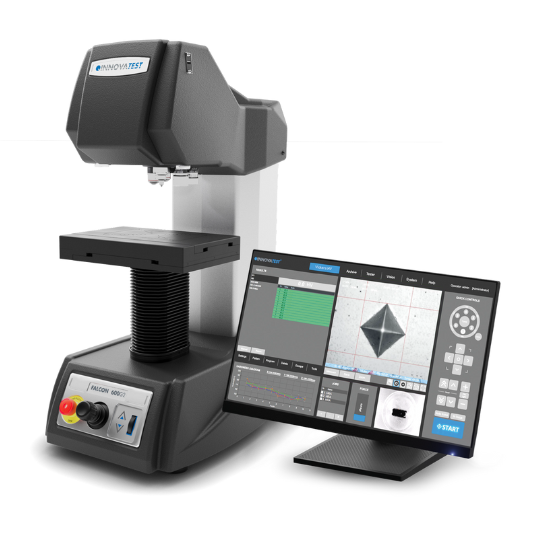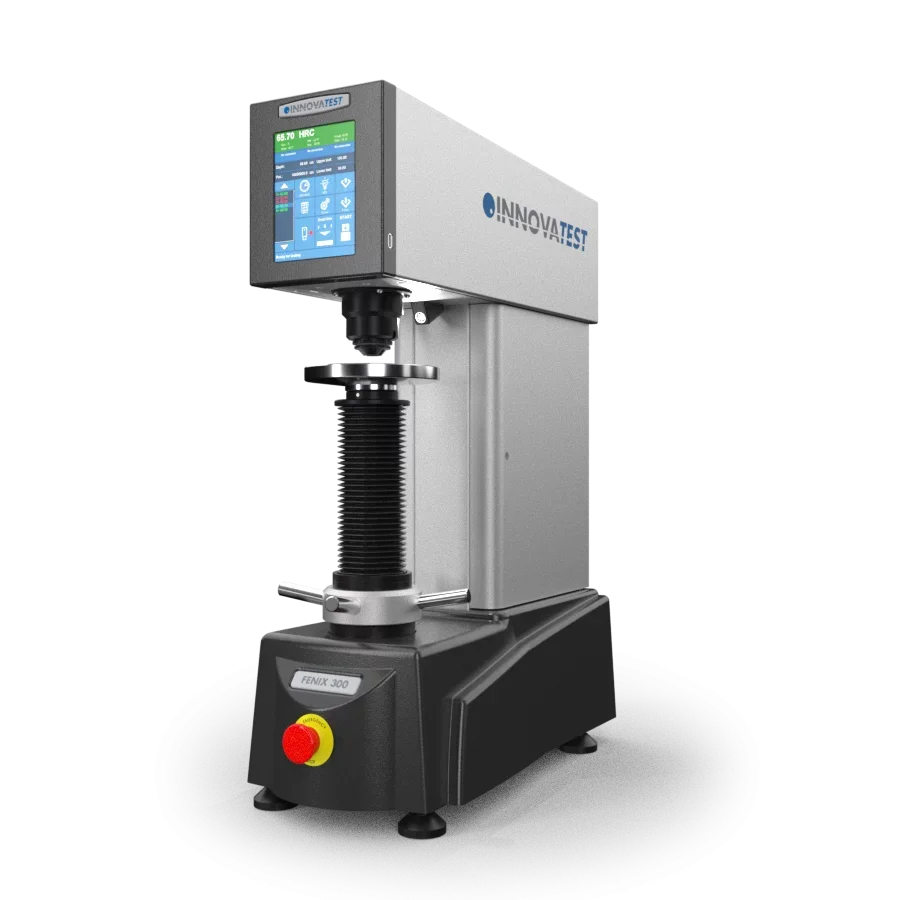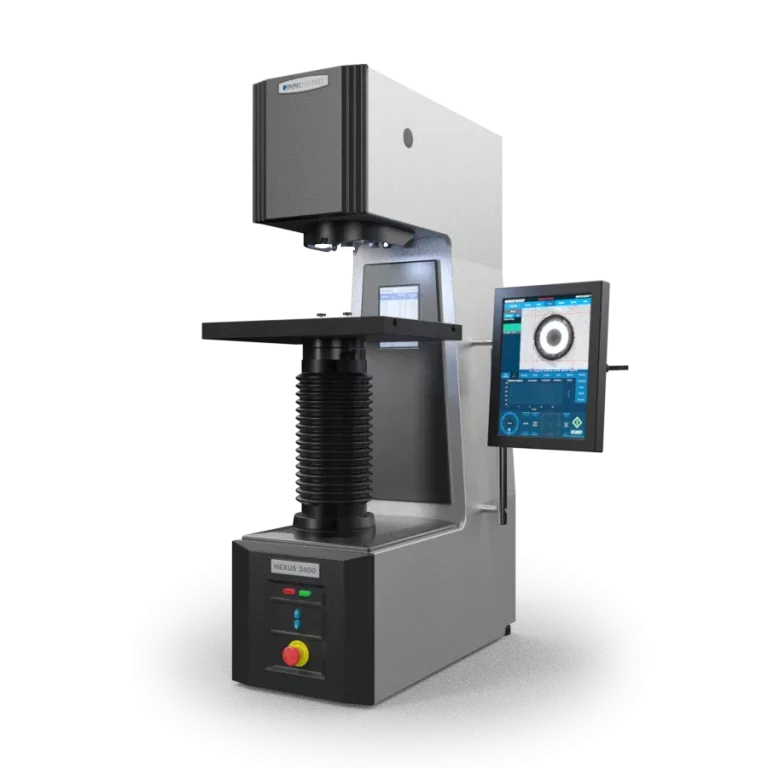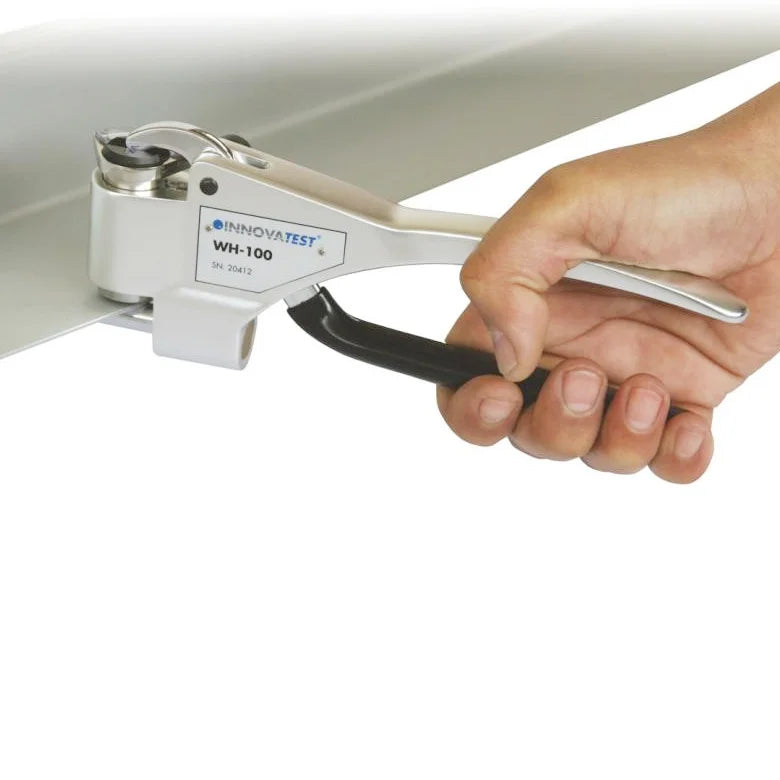
Introduction
Hardness testing is a crucial process in material science and quality control, ensuring that materials meet the required specifications for durability and performance. Two primary categories of hardness testers exist: Benchtop Hardness Testers and Portable Hardness Testers. Each type serves specific applications and comes with advantages and limitations. This article explores the differences, applications, and suitable scenarios for each type of tester.
Benchtop Hardness Testers
Overview
Benchtop hardness testers are stationary devices used in controlled environments such as laboratories or production lines. These machines offer high precision, repeatability, and compliance with industry standards.
Advantages of Benchtop Testers
-
Accuracy: When the sample fits within the benchtop tester's workspace, these devices provide superior accuracy and stability.
-
Compliance with Standards: Benchtop testers can be directly and indirectly calibrated according to ISO and ASTM hardness standards, ensuring accurate results.
-
High Repeatability and Precision: Due to their stable testing environment, benchtop testers minimize external interferences and measurement errors.
-
Wide Range of Testing Methods: They support a variety of standardized testing methods, including:
-
Rockwell (HR)
-
Brinell (HB)
-
Vickers (HV)
-
Knoop (HK)
The Falcon 400 is a great option as a Manual Vickers Hardness Tester
Limitations of Benchtop Testers
-
Size Constraints: Large or irregularly shaped samples that do not fit within the workspace cannot be tested.
-
Fixed Location: Benchtop testers require a dedicated workspace, making them unsuitable for fieldwork or mobile applications.
-
Price: Benchtop systems are typically (not always) more expensive than portable devices
Portable Hardness Testers
When to Use a Portable Hardness Tester
-
Large Samples: When the sample is too large to fit within a benchtop tester.
-
Hard-to-Reach Test Positions: When the test position on a sample is not accessible by a benchtop tester but can be reached by a portable unit.
-
On-Site Testing: If testing is required in the middle of a workshop or at an off-site location, portable hardness testers provide convenience and flexibility.
Limitations of Portable Testers
-
Accuracy: Whilst there are some very accurate portables, a benchtop will generally offer superior accuracy
-
Sample mass: Some testers, like Leeb hardness testers, require a minimum amount of mass to give a stable result
-
Longevity: Generally speaking, a benchtop system tends to be more robust and have a longer expected working life
Types of Portable Hardness Testing Methods
Portable testers utilize various testing principles to accommodate different materials and applications. The most common portable hardness testing methods include:
1. Leeb Hardness Testers (Rebound Method)
-
Measures the rebound velocity of an impact body striking the sample.
-
Best suited for large metal components such as castings and forgings.
-
Less accurate for small or thin samples due to surface vibrations.
2. UCI Hardness Testers (Ultrasonic Contact Impedance)
-
Uses an ultrasonic probe to measure material hardness through indentation depth.
-
Ideal for thin materials, fine-grained metals, and surface-hardened components.
-
Offers non-destructive testing capabilities.
-
Employs a Rockwell method with a magnetic base for stability.
-
Well-suited for large steelparts that cannot be moved to a benchtop tester.
4. Brinell in a Test Rig, Magnetic Base, or Chain (Often referred to as a King tester)
-
Provides Brinell hardness measurements in portable configurations.
-
Used for heavy-duty industrial applications such as testing large machine parts and steel structures.
5. Barcol Hardness Testers
-
Specifically designed for soft materials such as aluminum, plastics, and composites.
-
Commonly used in industries like automotive, aerospace, and marine.
6. Webster Hardness Testers
-
Used for thin metals, aluminum sheets, and tubing.
-
Provides fast and easy on-the-spot hardness testing.
-
A non-contact method using electromagnetic fields to assess material hardness.
-
Useful for specific applications requiring non-destructive testing.
Conclusion
Both benchtop and portable hardness testers have distinct advantages, making them ideal for different testing environments. If a sample fits within a benchtop tester, it remains the preferred choice due to its high precision, repeatability, and compliance with standards. However, when testing large or difficult-to-access samples, portable testers provide an excellent alternative with various methods tailored to specific applications.
Understanding which hardness testing method best suits your materials and testing environment is crucial for ensuring accurate, reliable, and efficient hardness measurements in your operations.
Need advice on which new hardness tester to get? Contact us at sales@innovatest-uk.com






